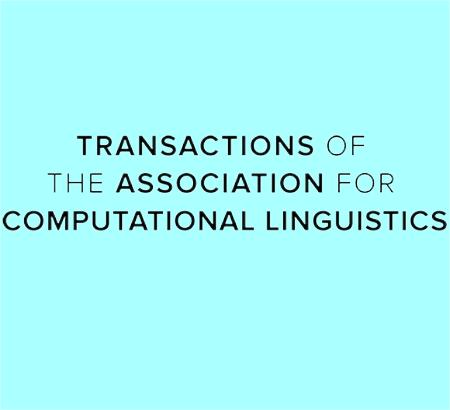有帮助的邻居:利用邻居的地理特征发音
IF 4.2
1区 计算机科学
Q2 COMPUTER SCIENCE, ARTIFICIAL INTELLIGENCE
Transactions of the Association for Computational Linguistics
Pub Date : 2022-10-18
DOI:10.1162/tacl_a_00535
引用次数: 1
摘要
如果你在纽约看到Houston Mercer Dog Run这个地名,你怎么知道怎么发音?假设人们知道纽约的休斯顿发音为/haõstõn/,而不像德克萨斯州的城市(/hjuõstşn/。我们提出了一种新的架构,该架构学习使用相邻名称的发音来猜测给定目标特征的发音。应用于日本地名,我们展示了该模型在查找谷歌地图错误并提出更正建议方面的实用性。为了证明这种方法在结构相似问题上的实用性,我们还报道了一种完全不同任务的应用:比较历史语言学中的认知反射预测。代码的一个版本是开源的。1本文章由计算机程序翻译,如有差异,请以英文原文为准。
Helpful Neighbors: Leveraging Neighbors in Geographic Feature Pronunciation
If one sees the place name Houston Mercer Dog Run in New York, how does one know how to pronounce it? Assuming one knows that Houston in New York is pronounced /ˈhaʊstən/ and not like the Texas city (/ˈhjuːstən/), then one can probably guess that /ˈhaʊstən/ is also used in the name of the dog park. We present a novel architecture that learns to use the pronunciations of neighboring names in order to guess the pronunciation of a given target feature. Applied to Japanese place names, we demonstrate the utility of the model to finding and proposing corrections for errors in Google Maps. To demonstrate the utility of this approach to structurally similar problems, we also report on an application to a totally different task: Cognate reflex prediction in comparative historical linguistics. A version of the code has been open-sourced.1
求助全文
通过发布文献求助,成功后即可免费获取论文全文。
去求助
来源期刊
CiteScore
32.60
自引率
4.60%
发文量
58
审稿时长
8 weeks
期刊介绍:
The highly regarded quarterly journal Computational Linguistics has a companion journal called Transactions of the Association for Computational Linguistics. This open access journal publishes articles in all areas of natural language processing and is an important resource for academic and industry computational linguists, natural language processing experts, artificial intelligence and machine learning investigators, cognitive scientists, speech specialists, as well as linguists and philosophers. The journal disseminates work of vital relevance to these professionals on an annual basis.

 求助内容:
求助内容: 应助结果提醒方式:
应助结果提醒方式:


